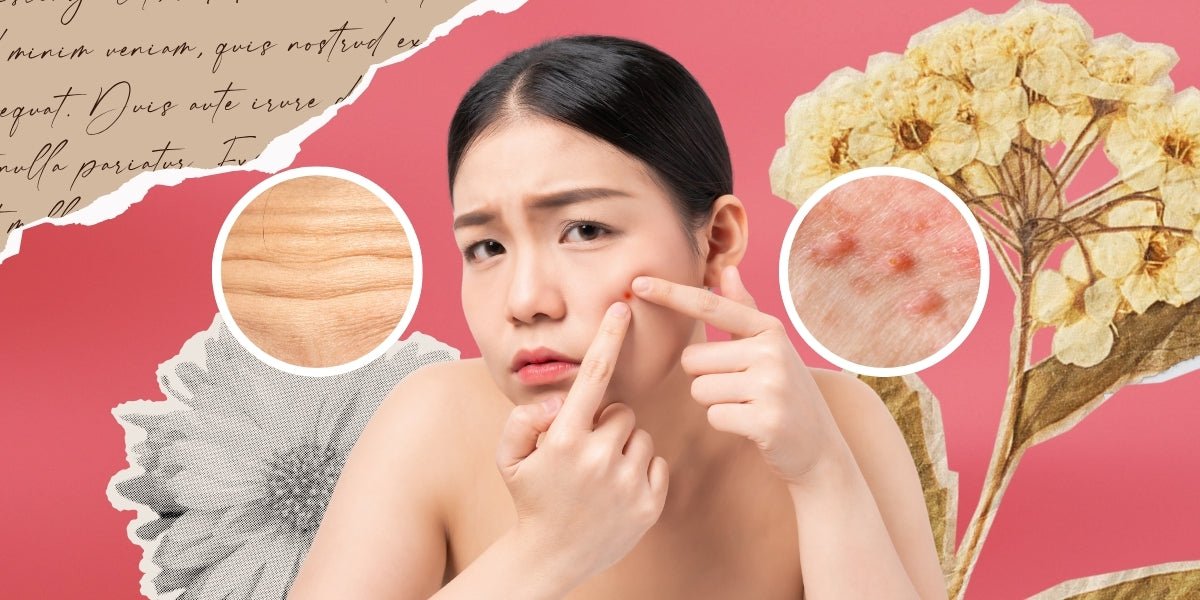
Stressed Out? Here’s How It Shows Up on Your Skin
|
|
Tempo di lettura 3 min
|
|
Tempo di lettura 3 min
Feeling overwhelmed can take a toll on your body, and your skin is one of the first places to show it. When you're stressed out, your body's natural response can lead to a range of skin issues.
From acne and rosacea to dryness and irritation, the connection between stress and skin health is undeniable. When you're under pressure, your skin can react in ways that are both visible and uncomfortable.
Understanding the link between stress and skin can help you take the first steps towards managing your skin health. By recognizing the signs of stress on your skin, you can start to take control and find ways to alleviate the symptoms.
Stress doesn't just affect your mental well-being; it also has a tangible impact on your skin. When you're under stress, your body releases more cortisol, a hormone that can lead to increased oil production and potentially cause acne. Moreover, stress can impair your skin's natural barrier function, making it more susceptible to irritation and inflammation.
Skin stress signs can manifest in various ways, including redness, itchiness, and even conditions like eczema or psoriasis. When stress takes over, your skin often bears the brunt, revealing signs that can be both surprising and concerning.
Managing stress is crucial for maintaining healthy skin. High levels of stress can exacerbate conditions like acne, rosacea, and eczema, making it essential to address both the physical and emotional aspects of stress.
Other skin issues linked to stress include dark circles under the eyes, a dull complexion, and even hair loss. Recognizing these signs can be the first step towards managing stress for better skin.
By understanding the connection between stress and skin health, you can take proactive steps to mitigate the negative effects and promote a healthier, more resilient complexion.
Our skin's response to stress is a complex interplay of various physiological signals, primarily driven by stress hormones. When we experience stress, our body releases cortisol and other hormones that can significantly impact our skin's health.
The release of cortisol can lead to increased oil production, potentially clogging pores and causing acne. Moreover, stress can impair the skin's natural barrier function, making it more susceptible to irritation and inflammation.
Understanding the stress hormones and skin connection is crucial for mitigating the negative effects of stress on our skin. By recognizing the signs of stress on our skin, we can take proactive steps to protect and care for it.
Maintaining a healthy skincare routine, managing stress through relaxation techniques, and ensuring adequate sleep can help counteract the stress impact on skin health. By taking these steps, we can promote healthier, more resilient skin even during stressful times.
Managing stress is crucial for maintaining healthy, glowing skin, even in the most trying times. Effective stress management can significantly reduce the negative impact of stress on your skin.
One key strategy is to establish a consistent skincare routine. This helps in maintaining the skin's barrier function and reducing the appearance of stress-related skin issues. Additionally, practices like meditation and yoga can help reduce overall stress levels, which in turn benefits your skin.
Maintaining a balanced diet rich in antioxidants and staying hydrated are also crucial. These habits support skin health and enhance its resilience to stress. By combining these strategies, you can better manage the effects of stress on your skin.
Understanding the link between stress and skin health is crucial for maintaining a healthy complexion. By recognizing the signs of stress on your skin, you can take proactive steps to mitigate its effects. Simple stress-reducing techniques, such as meditation and deep breathing, can help alleviate stress and promote skin health.
By incorporating skin-saving strategies into your daily routine, you can better manage stress and support your skin's natural barrier function. Prioritizing stress management is essential for achieving healthier, more resilient skin. By taking control of stress and skin health, you can enjoy a more radiant and confident you.
Stress can cause a variety of skin issues, including acne, redness, and irritation, due to the release of stress hormones like cortisol, which can lead to inflammation and disrupt the skin's natural balance.
Common signs include acne, redness, itchiness, dryness, and sensitivity, as stress can trigger or exacerbate conditions like eczema, rosacea, and psoriasis.
Chronic stress can lead to prolonged inflammation, potentially causing long-term skin damage, such as persistent acne, hyperpigmentation, and premature aging.
Practicing stress-reducing techniques like meditation, yoga, or deep breathing, along with maintaining a consistent skincare routine, getting enough sleep, and staying hydrated, can help mitigate the effects of stress on the skin.
Yes, products containing soothing ingredients like aloe vera, green tea, or chamomile, as well as those with salicylic acid or benzoyl peroxide for acne, can be beneficial in managing stress-related skin issues.
A balanced diet rich in fruits, vegetables, whole grains, and omega-3 fatty acids can help support skin health and reduce the negative effects of stress on the skin.
